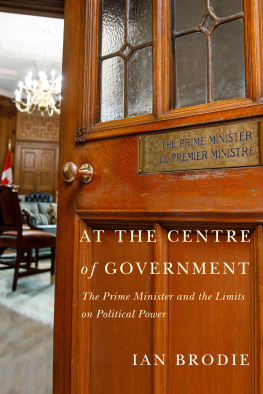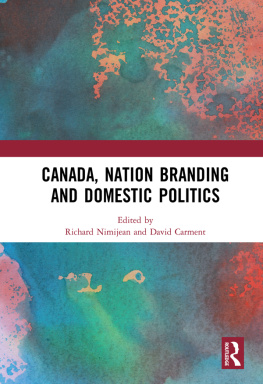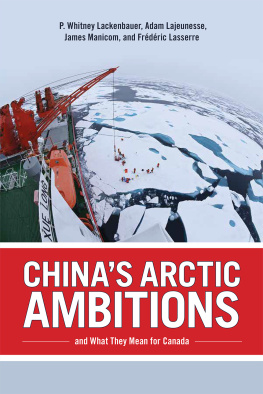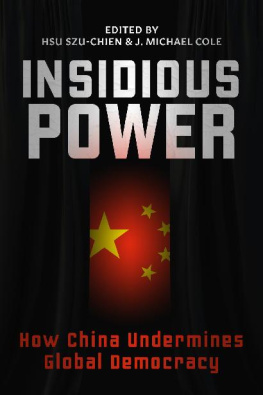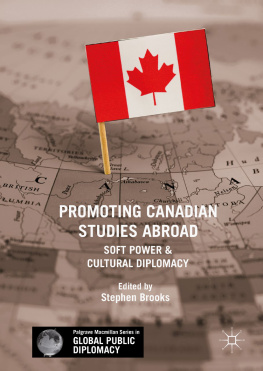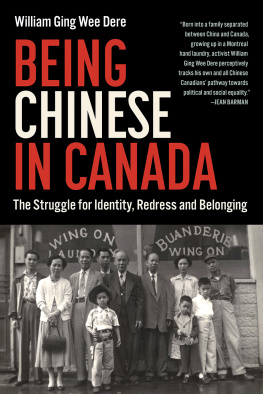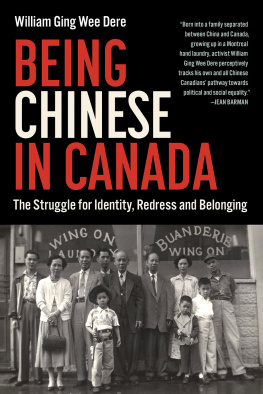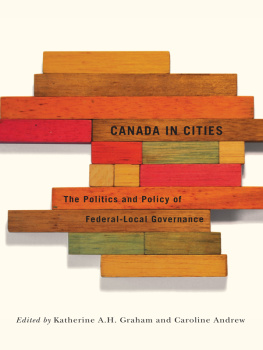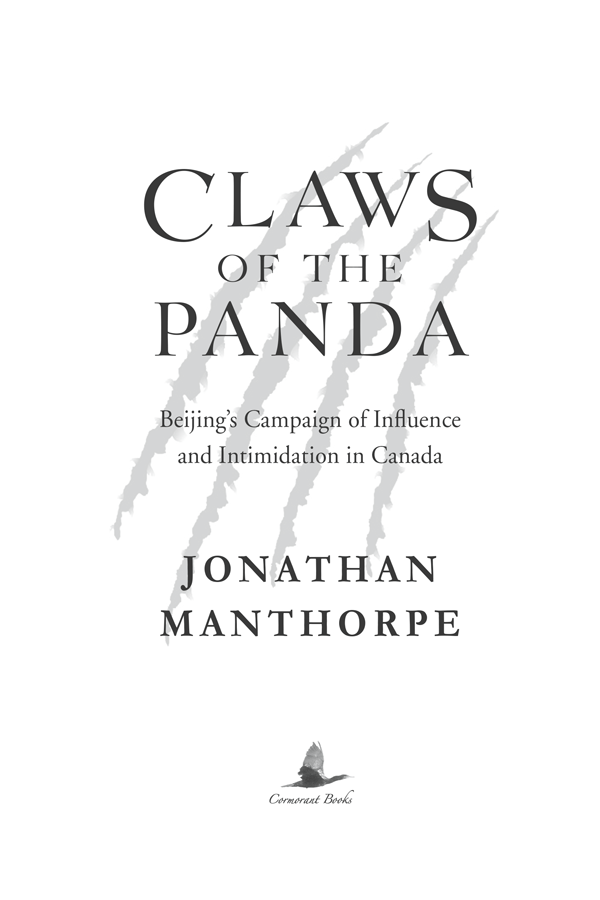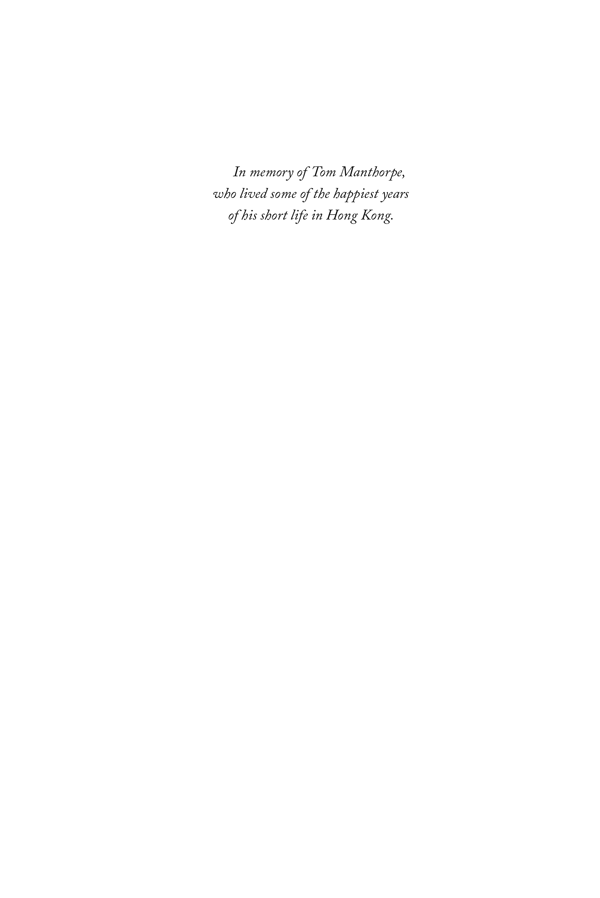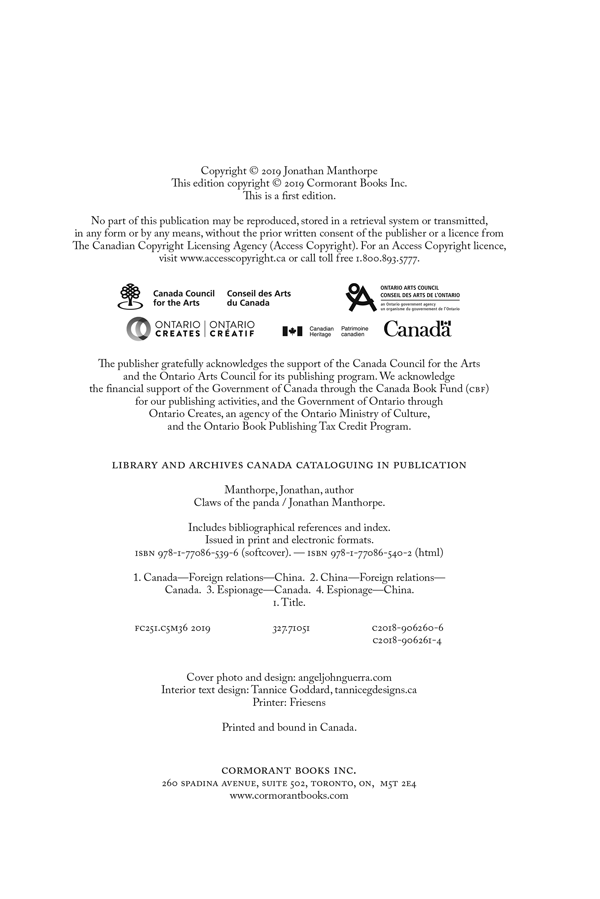
CONTENTS
Introduction
Return of the Middle Kingdom / 1
Chapter One
Fighting the Five Poisonous Groups / 13
Chapter Two
The Hundred Strategies to Frustrate Enemy Forces / 35
Chapter Three
Chinese Build Canada; Canadians Save China / 55
Chapter Four
Wanted and Unwanted Foreigners / 75
Chapter Five
A Friend in Americas Backyard / 95
Chapter Six
Romance Meets Reality / 113
Chapter Seven
Reality Bites / 131
Chapter Eight
Snakebite / 151
Chapter Nine
Controlling the Message / 169
Chapter Ten
Controlling the Thought / 187
Chapter Eleven
Big Mountain: Gold Mountain / 207
Chapter Twelve
Never Mind the Quality; Feel the Width / 227
Chapter Thirteen
Calling the Tune / 247
Epilogue
Time to Abandon the Missionary Spirit / 269
Acknowledgements / 275
Bibliography / 279
Index / 281
INTRODUCTION
RETURN OF THE MIDDLE KINGDOM
China does not see itself as a rising, but as a returning power It does not view the prospect of a strong China exercising influence in economic, cultural, political, and military affairs as an unusual challenge to world order but rather a return to a normal state of affairs.
, ON CHINA
MUCH OF THIS book is about how the and the Chinese Communist Party sees itself re-emerging as the worlds natural, irreplaceable superpower after two centuries of humiliation at the hands of Western nations, engagement with China cannot and should not be avoided. But what the often sad and difficult story of Canadas 150 years of involvement with China tells us is that we need to find a less self-delusional, more courageous, and more intelligent way of dealing with the new version of the Middle Kingdom. If Canada does not reassess and rework its approach to Beijing, this country may be steamrollered by the new juggernaut of history.
The tectonic plates of international power are shifting, thankfully peacefully so far. But as I write in mid-2018, even two years ago the world and its prospects looked very different. There were few visible hints of the cascade into political dysfunction and isolationism that overtook the is a symptom of the isolationism that for many Americans has always accompanied their belief in the exceptionality of American society. More important, perhaps, is that Trump is the face of one side of the widening political and social divide within the United States that is making it nearly impossible for political and administrative life to function. That destructive friction between conflicting views of the world shows no sign of being resolved any time soon. It is already contributing to the withering of the American imperium, and it is accentuating the contrast with the rise of other nations, especially China.
In the rapidly approaching future, Canada is not going to be able to rely on Washington as an ally in regional security or a trustworthy partner in , the internal admin istration, the attitudes toward neighbouring and foreign states these all owe more to Chinese traditions than to the countrys experience of the outside world since the end of isolationism in the 1970s. The Communist Party in Beijing oversees a modernized version of a classic Chinese imperial dynasty.
It is clear that the CCP s dynastic ambitions include running a and resisting political reform with all the tools at its command. The CCP s political legitimacy comes from massive internal repression tempered by efforts to provide a standard of living that discourages dissent. This has worked well since the era of revised Marxist economics began in the 1980s. Hundreds of millions of Chinese have seen their standard of living improve beyond what they could have imagined. But with that improvement has come the expectation that their quality of life will continue to improve. This carries a threat for the CCP : if the party fails to continue to feed the desires it has created, it will lose the Mandate of Heaven, the historic concept of divine political legitimacy conferred on Chinese rulers only so long as they are successful.
Flowing naturally from Chinas economic success is a heightened sense of patriotism and nationalism. State-controlled media incessantly pushes the theme of China riding a wave of national revival, to the point of stoking xenophobia, which is fed by appeals to ancient animosities toward neighbours such as . The CCP misses no opportunity to fabricate warnings that, behind a facade of democratic pacifism, Japan remains a militaristic country.
Beijing also nurtures more recent suspicions that the United States and other Western countries are bent on containing Chinas rise and reimposing the semi-colonialism of the last half of the nineteenth and early twentieth centuries. Ending what the CCP calls the century of humiliation is fostered in part by reviving a sense of superiority over neighbouring countries. These were vassal states in imperial times, and the CCP suggests they will be vassals again. Indeed, some such as Cambodia and Laos already are. This trumpeting of refreshed Chinese imperialism includes pursuing has turned one of the worlds most important routes for international trade into what amounts to a Chinese lake. Much of the CCP s colonialism is surreptitious. In the last two decades, about one million people from Chinas southwestern Yunnan province have moved over the border into northern Myanmar. They are taking advantage of the business opportunities in the city of Mandalay and the attractions of the casino towns that have sprung up in the lawless regions under the control of Myanmars ethnic minority warlords.
For two decades or so, CCP state-owned companies and banks have been using the gargantuan profits from the export of manufactured consumer goods to acquire control of natural resources worldwide. Beijing has also been astute in offering cheap loans to governments others considered too risky. Too late, the recipients find that when they are unable to repay the loans, the CCP s agents are ruthless in demanding assets instead. Thats how the CCP got control of the strategic Sri Lankan port of Hambantota and sixty square kilometres of land around it. Something similar happened when Greece fell on hard times and could no longer get loans from its European Union partners. Beijing stepped in to help, but the upshot is that a Chinese state-owned company owns half of Athens port of Piraeus.
The acquisition of Greek and other European ports is part of Xi Jinpings most lavish imperial enterprise. His multi-trillion-dollar One Belt, One Road scheme envisages a vast rail, road, air, and sea network that directly links China to two-thirds of the worlds population in . All roads will lead to Beijing and will be a route for the CCP s projection of power and influence throughout this modern version of the old Silk Road.
President Xi has made it clear that he has no regard for the values of democracy and , the International Monetary Fund, and all the agencies that have flowed from them. Those institutions do not represent the values of the world that Xi wants to create. He will either bend them to his will or supplant them with new bodies more to his liking.


